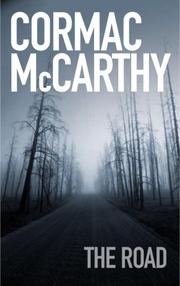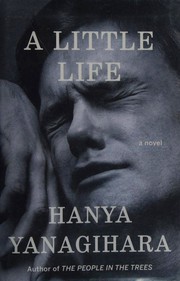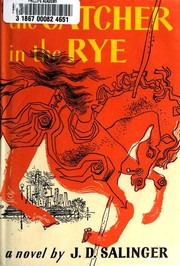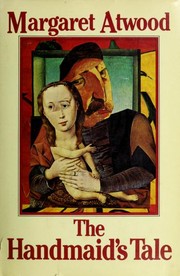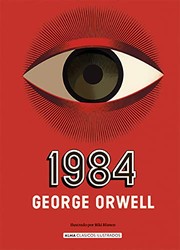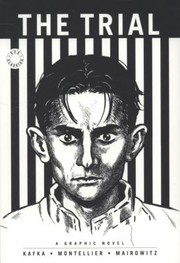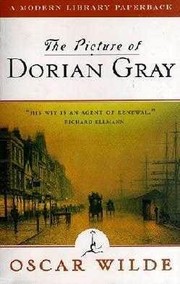Are you in need of a good book on hopelessness? Sometimes, diving into a story that reflects our inner struggles can be cathartic and comforting. Whether you’re looking for a novel that delves deep into the human experience or a memoir that resonates with your own feelings of despair, there are plenty of hopelessness books out there to choose from. In this article, we’ve curated a list of the 20 best books about hopelessness that will speak to your soul and remind you that you’re not alone in your struggles. So, grab a cozy blanket and get ready to explore these powerful and poignant tales of despair.
Contents
- 1 20 Best Hopelessness Books
- 2 The Road
- 3 A Little Life
- 4 The Bell Jar
- 5 The Catcher in the Rye
- 6 The Stranger
- 7 Never Let Me Go
- 8 The Handmaid’s Tale
- 9 1984
- 10 The Trial
- 11 The Metamorphosis
- 12 Beloved
- 13 The Grapes of Wrath
- 14 One Hundred Years of Solitude
- 15 The Great Gatsby
- 16 Crime and Punishment
- 17 The Picture of Dorian Gray
- 18 Brave New World
- 19 The Kite Runner
- 20 The Book Thief
- 21 No Country for Old Men
- 22 Final Thoughts on Best Hopelessness Books
- 23
20 Best Hopelessness Books
The Road
by Cormac McCarthy
The Road by Cormac McCarthy is a haunting and visceral exploration of a post-apocalyptic world. Set in a desolate landscape where the sun is obscured by ash and the air is toxic, the novel follows a father and son as they journey towards the coast in search of salvation. The story is a harrowing depiction of survival in the face of overwhelming despair and desolation. The father and son encounter unspeakable horrors as they struggle to find food, shelter, and safety in a world that has been ravaged by an unnamed catastrophe. McCarthy’s prose is spare and unflinching, painting a bleak and unforgiving portrait of a world devoid of hope. The novel is a poignant meditation on the resilience of the human spirit in the face of overwhelming adversity, making it a powerful and unforgettable book about hopelessness.
A Little Life
by Hanya Yanagihara
A Little Life by Hanya Yanagihara is a profound and heart-wrenching exploration of trauma, friendship, and the enduring power of love. The novel follows the lives of four college friends as they navigate the complexities of adulthood in New York City. At its core, the book delves into the depths of human suffering, chronicling the unimaginable pain and trauma experienced by one of the friends, Jude St. Francis. With unflinching honesty, the author delves into the darkness of Jude’s past and the lasting impact it has on his life.
This is a book about hopelessness, but it also speaks to the resilience of the human spirit and the enduring power of friendship. Yanagihara’s prose is both beautiful and devastating, drawing readers into the inner lives of her characters with remarkable empathy and insight. A Little Life is a haunting and unforgettable exploration of the human capacity for both cruelty and compassion, and a testament to the enduring power of love in the face of unspeakable suffering.
The Bell Jar
by Sylvia Plath
The Bell Jar, written by Sylvia Plath, is a captivating and haunting novel that delves into the depths of the human mind. The story follows Esther Greenwood, a young woman who descends into a state of despair and disillusionment, grappling with feelings of isolation and disconnection from the world around her. Plath’s vivid and evocative prose paints a vivid picture of Esther’s internal turmoil, as she battles against the suffocating pressures of societal expectations and the overwhelming sense of hopelessness that engulfs her.
The Bell Jar is a powerful exploration of mental illness, capturing the raw and unflinching reality of living with depression and despair. Plath’s masterful storytelling draws readers into Esther’s inner world, offering a poignant and unflinching portrayal of her struggles. Through Esther’s journey, the novel confronts the complexities of the human psyche and the profound impact of hopelessness on the human spirit. The Bell Jar is a compelling and thought-provoking book about hopelessness that resonates with readers long after the final page is turned.
The Catcher in the Rye
by J.D. Salinger
The Catcher in the Rye by J.D. Salinger is a classic novel that delves into the theme of despair and disillusionment. The story follows the protagonist, Holden Caulfield, a disenchanted teenager who struggles to find meaning in a world filled with phoniness and insincerity. As he navigates through the complexities of adolescence, Holden grapples with feelings of alienation and despondency, searching for a sense of belonging and authenticity.
This book on hopelessness captures the essence of teenage angst and the overwhelming sense of isolation that many young people experience. Through Holden’s poignant narrative, readers are taken on a journey of self-discovery and introspection, shedding light on the universal struggles of growing up and finding one’s place in the world. The Catcher in the Rye is a timeless exploration of the human condition, offering a raw and unfiltered portrayal of the complexities of youth and the pervasive feelings of hopelessness that often accompany it.
The Stranger
by Albert Camus
The Stranger by Albert Camus is a classic novel that delves into the existential themes of absurdity, alienation, and detachment. Set in 1940s Algiers, the story follows the life of Meursault, a detached and apathetic man who becomes embroiled in a senseless murder. The novel explores Meursault’s emotional detachment and his inability to conform to societal norms, making it a compelling book on hopelessness and existential despair. Meursault’s indifference to the world around him creates a sense of alienation and disconnection, drawing the reader into a world of introspection and philosophical contemplation. Camus’ writing style is stark and unembellished, mirroring the starkness of Meursault’s emotional landscape. The novel challenges the reader to confront the absurdity of life and the futility of human existence, making it a powerful and thought-provoking book about hopelessness. The Stranger is a timeless exploration of the human condition, delving into the depths of existential angst and the search for meaning in a seemingly indifferent universe.
Never Let Me Go
by Kazuo Ishiguro
Never Let Me Go by Kazuo Ishiguro is a haunting and poignant novel that delves into the lives of three friends, Kathy, Tommy, and Ruth, as they navigate their way through a strange and isolated boarding school called Hailsham. As they grow up, they come to realize the grim truth about their existence – they are clones raised for the sole purpose of donating their organs. The novel explores themes of mortality, identity, and the ethical implications of cloning, and the characters’ struggle to find meaning and purpose in their predetermined lives.
Set in a dystopian alternate reality, Never Let Me Go is a deeply moving book about hopelessness, resignation, and the inevitability of their fate. Ishiguro’s beautiful and lyrical prose draws readers into the emotional world of the characters, as they come to terms with their bleak future. As they grapple with their lack of agency and the knowledge that their lives are ultimately disposable, the novel raises profound questions about the nature of humanity and the human spirit in the face of despair.
The Handmaid’s Tale
by Margaret Atwood
The Handmaid’s Tale by Margaret Atwood is a chilling dystopian novel that delves into the oppression and despair of a society stripped of freedom and autonomy. Set in the near future, the story unfolds in the Republic of Gilead, a totalitarian state where women are subjugated and reduced to their reproductive functions. The protagonist, Offred, is a handmaid assigned to bear children for the ruling class. Through her eyes, we witness the systematic dehumanization and control inflicted upon women, as well as the pervasive sense of despair and powerlessness that permeates every aspect of their lives.
Atwood’s poignant exploration of a society plagued by hopelessness and despair serves as a stark warning about the potential consequences of unchecked power and the erosion of individual liberties. The Handmaid’s Tale is a thought-provoking and haunting book about hopelessness that continues to resonate with readers, prompting reflection on the fragile nature of freedom and the importance of resisting oppression.
1984
by George Orwell
1984 is a dystopian novel by George Orwell that explores a world of surveillance, propaganda, and totalitarian control. Set in a future society where the government, led by the oppressive figure Big Brother, exercises complete authority over its citizens, the book paints a bleak picture of a world devoid of freedom and individuality.
The protagonist, Winston Smith, works for the Ministry of Truth, altering historical records to fit the party’s propaganda. As he begins to question the reality around him, he embarks on a journey of rebellion and self-discovery, ultimately facing the consequences of challenging the oppressive regime.
Orwell’s novel delves into themes of oppression, manipulation, and the loss of personal autonomy. It serves as a chilling warning about the dangers of unchecked government power and the erosion of individual liberties. With its depiction of a society trapped in a cycle of despair and control, 1984 remains a powerful and thought-provoking book on hopelessness.
The Trial
by Franz Kafka
The Trial by Franz Kafka is a haunting and enigmatic book about hopelessness, bureaucracy, and the absurdity of the legal system. The story follows the protagonist, Joseph K., who is arrested and prosecuted for a crime that is never revealed to him. As he navigates through a labyrinth of courtrooms, lawyers, and judges, he becomes increasingly entangled in a web of confusion and despair. The novel’s surreal and nightmarish atmosphere creates a sense of unease and existential dread, as Joseph K. grapples with the futility of his situation. Kafka’s prose is characterized by its precision and ambiguity, drawing readers into a world where logic and reason seem to have no place. The Trial is a timeless exploration of the individual’s struggle against an indifferent and incomprehensible system, making it a compelling and thought-provoking read for anyone interested in the complexities of human existence.
The Metamorphosis
by Franz Kafka
The Metamorphosis by Franz Kafka is a classic book about hopelessness and alienation. The story follows Gregor Samsa, a hardworking salesman who wakes up one morning to find himself transformed into a monstrous insect. As he grapples with his new insect body and the reactions of his horrified family, Gregor also faces the crushing realization that he is now a burden to his family and unable to support them as he once did. The novel delves into themes of isolation, despair, and the dehumanizing effects of modern society. Kafka’s writing style is haunting and thought-provoking, drawing readers into the unsettling world of Gregor’s transformation. The Metamorphosis is a powerful exploration of the human experience and the feeling of being trapped in a hopeless situation, making it a compelling read for anyone interested in delving into the depths of the human psyche.
Beloved
by Toni Morrison
Beloved by Toni Morrison is a haunting and powerful novel that delves into the depths of human suffering and the enduring resilience of the human spirit. Set in post-Civil War America, the story follows Sethe, a former slave who is haunted by the trauma of her past and the ghost of her deceased daughter, Beloved. The novel weaves a tale of love, loss, and the profound impact of slavery on the human psyche.
This book on hopelessness explores the profound sense of despair and anguish that permeates the lives of the characters, while also illustrating the strength and resilience that can be found in the face of seemingly insurmountable adversity. Through Morrison’s lyrical prose and evocative storytelling, Beloved is a poignant and thought-provoking exploration of the human experience in the face of overwhelming hopelessness.
The Grapes of Wrath
by John Steinbeck
The Grapes of Wrath, a classic novel by John Steinbeck, is a powerful and poignant book about hopelessness during the Great Depression. The story follows the Joad family as they are forced to leave their drought-stricken farm in Oklahoma and journey to California in search of a better life. The novel vividly captures the struggles of the working class during this tumultuous period in American history, depicting the harsh realities of poverty, discrimination, and exploitation.
Steinbeck’s evocative writing style and vivid descriptions immerse the reader in the Joad family’s journey, as they face one hardship after another. The novel is a stark portrayal of the despair and desolation experienced by many during the Dust Bowl era, highlighting the resilience and determination of the human spirit in the face of adversity. The Grapes of Wrath is a timeless and thought-provoking exploration of the human condition, making it a must-read for anyone interested in understanding the depths of despair and the enduring power of hope.
One Hundred Years of Solitude
by Gabriel Garcia Marquez
One Hundred Years of Solitude is a mesmerizing tale that delves into the intricacies of the Buendía family and the town of Macondo. Gabriel Garcia Marquez weaves a vivid tapestry of magical realism, where the ordinary is infused with the extraordinary. The novel follows the lineage of the Buendía family through generations, capturing their triumphs and tragedies in a timeless and cyclical manner. The story depicts the rise and fall of the town of Macondo, shining a light on the human condition and the inevitability of fate. Through its enchanting prose and captivating characters, the novel explores the complexities of human relationships, the passing of time, and the inescapable cycle of life and death. It is a book about the futility of human endeavor, the interconnectedness of all things, and the relentless march of time. One Hundred Years of Solitude is a profound and thought-provoking read, offering a glimpse into the complexities of the human experience and the inexorable passage of time.
The Great Gatsby
by F. Scott Fitzgerald
The Great Gatsby is a classic novel written by F. Scott Fitzgerald that delves into the themes of disillusionment, longing, and the pursuit of the American Dream. Set in the roaring 1920s, the story follows the enigmatic Jay Gatsby, a wealthy and mysterious man who is hopelessly in love with Daisy Buchanan, a woman from his past. Through the eyes of the narrator, Nick Carraway, the readers are taken on a journey of excess, opulence, and the emptiness that lies beneath the facade of wealth and glamour.
As the narrative unfolds, the characters grapple with their own desires and the inevitable disillusionment that comes with them. The novel paints a vivid picture of the Jazz Age, but beneath the glitz and glamour, it explores the futility of chasing unattainable dreams and the emptiness that can accompany material success. The Great Gatsby is a profound exploration of the human condition, making it a must-read for anyone seeking to understand the complexities of the human experience.
Crime and Punishment
by Fyodor Dostoevsky
Crime and Punishment is a profound exploration of the human psyche and the consequences of guilt. Fyodor Dostoevsky’s masterpiece delves into the mind of Raskolnikov, a destitute student who commits a heinous crime in a desperate attempt to prove his superiority and alleviate his poverty. As the weight of his actions consumes him, Raskolnikov becomes ensnared in a web of paranoia and despair, grappling with the torment of his conscience.
Set against the gritty backdrop of 19th-century St. Petersburg, this book on hopelessness exposes the bleakness of poverty and the moral decay that festers in its shadows. Through Raskolnikov’s journey, Dostoevsky offers a searing critique of nihilism and explores the complexities of redemption and forgiveness. Crime and Punishment is a harrowing yet captivating portrayal of the human condition, a haunting reminder of the destructive power of guilt and the enduring search for absolution.
The Picture of Dorian Gray
by Oscar Wilde
The Picture of Dorian Gray by Oscar Wilde is a captivating exploration of the dangers of vanity and the consequences of moral corruption. The novel follows the handsome and charming Dorian Gray, who becomes the subject of a portrait by the talented artist Basil Hallward. When Dorian makes a wish that he could remain young and beautiful while his portrait ages, his wish is granted, leading to a life of hedonistic indulgence and moral decay.
As Dorian remains untouched by the passage of time, his portrait becomes a haunting reflection of his inner corruption and moral degradation. The novel delves into themes of beauty, decadence, and the destructive nature of vanity, offering a thought-provoking commentary on the human condition.
Wilde’s writing is rich with wit and wisdom, and the novel’s exploration of the consequences of moral degradation is as relevant today as when it was first published. The Picture of Dorian Gray is a compelling and thought-provoking read that offers a stark portrayal of the perils of indulgence and the inevitability of moral decay.
Brave New World
by Aldous Huxley
Brave New World by Aldous Huxley is a thought-provoking dystopian novel that explores a future society where human beings are engineered and conditioned for a predestined role in a highly stratified world. Set in a futuristic London, the novel follows the story of Bernard Marx, an Alpha-Plus who feels alienated from the conformist society, and John, a ‘Savage’ from a reservation outside the World State who challenges the values of the dystopian society. Huxley’s masterful storytelling and vivid imagery paint a chilling picture of a world where individuality is suppressed, and human emotions are numbed with the use of a drug called soma. The novel delves into themes of conformity, the loss of humanity, and the dangers of a society driven by consumerism and technology. With its exploration of a society devoid of true emotions and human connections, Brave New World is a compelling and thought-provoking book about hopelessness, offering a cautionary tale about the potential consequences of sacrificing individuality for the illusion of stability.
The Kite Runner
by Khaled Hosseini
The Kite Runner, a novel by Khaled Hosseini, is a poignant and heart-wrenching story that delves into the themes of guilt, redemption, and the devastating impact of betrayal. Set in Afghanistan, the story follows the journey of Amir, a young boy from a privileged background, and his loyal friend Hassan, a Hazara boy from a lower social class. The bond between the two boys is tested when a traumatic event changes their lives forever. As the story unfolds, Amir grapples with feelings of remorse and shame, and the burden of his past choices weighs heavily on him. The novel paints a vivid and haunting portrait of the ravages of war and the struggles of the Afghan people, making it a powerful book about hopelessness, despair, and the search for forgiveness. However, amidst the darkness, the story also offers glimmers of resilience, love, and the possibility of redemption, making it a compelling book on hopelessness that ultimately inspires hope.
The Book Thief
by Markus Zusak
The Book Thief by Markus Zusak is a captivating and heart-wrenching novel set in Nazi Germany, where a young girl named Liesel finds solace in books during a time of extreme despair and suffering. This powerful narrative is a book about hopelessness, but it also weaves a thread of resilience and humanity throughout the story. The author skillfully portrays the bleakness of war and the atrocities of the Holocaust, while also highlighting the transformative power of literature and the human spirit.
As Liesel navigates the horrors of her surroundings, she discovers the redemptive force of words and stories, finding moments of light in the midst of darkness. The Book Thief is a hopelessness book that manages to convey a sense of hope and compassion, reminding readers of the enduring strength found in the written word and the bonds that connect us as individuals. This novel is a poignant exploration of the human experience, and it leaves an indelible impact on those who delve into its pages.
No Country for Old Men
by Cormac McCarthy
No Country for Old Men, written by Cormac McCarthy, is a gripping and dark tale that delves into the depths of despair and hopelessness. Set in the desolate landscape of West Texas, the novel follows the intersecting lives of a Vietnam veteran, a drug deal gone wrong, and a relentless hitman. As the characters navigate through a world of violence, greed, and moral ambiguity, McCarthy paints a bleak picture of the human condition, showcasing the futility of hope in the face of overwhelming darkness.
The novel is a stark portrayal of a society plagued by corruption and moral decay, where the pursuit of wealth and power only leads to ruin and devastation. No Country for Old Men is a haunting and visceral exploration of the human capacity for evil and the overwhelming sense of despair that permeates the world. With its unflinching portrayal of the harsh realities of life, this book on hopelessness is a thought-provoking and unforgettable read.
Final Thoughts on Best Hopelessness Books
Hopelessness is a universal human experience, and these 20 books about hopelessness offer profound insights and perspectives on this challenging emotion. From personal memoirs to fictional tales, these books delve deep into the complexities of hopelessness, offering solace and understanding to readers who may be grappling with similar feelings. Whether you’re seeking solace, inspiration, or simply a deeper understanding of the human experience, these books are essential reads for anyone navigating the depths of despair.
Which book about Hopelessness is best?
The best book on Hopelessness can vary with personal preference, but three widely recommended titles are:
- The Road by Cormac McCarthy,
- A Little Life by Hanya Yanagihara,
- The Bell Jar by Sylvia Plath.
Each offers valuable insights and could be a great starting point.
What are the best books to learn about Hopelessness?
For those looking to learn about Hopelessness, there is a wealth of literature that can provide a comprehensive understanding of the subject. Some of the most highly recommended books include:
- The Road by Cormac McCarthy,
- A Little Life by Hanya Yanagihara,
- The Bell Jar by Sylvia Plath,
- The Catcher in the Rye by J.D. Salinger,
- The Stranger by Albert Camus,
- Never Let Me Go by Kazuo Ishiguro,
- The Handmaid’s Tale by Margaret Atwood,
- 1984 by George Orwell,
- The Trial by Franz Kafka,
- The Metamorphosis by Franz Kafka
These books offer a range of perspectives on Hopelessness, covering various aspects and approaches to the subject.
What are the best books about Hopelessness?
The best books about Hopelessness are:
- The Road by Cormac McCarthy,
- A Little Life by Hanya Yanagihara,
- Beloved by Toni Morrison,
- The Grapes of Wrath by John Steinbeck,
- 1984 by George Orwell,
- Never Let Me Go by Kazuo Ishiguro.
Each offers unique insights into the subject. While these books about Hopelessness are highly regarded, it’s important to note that any list of ‘best’ books is subjective and reflects a range of opinions.
What are the best Hopelessness books of all time?
Choosing the best Hopelessness books of all time can vary depending on who you ask, but five titles that are often celebrated include
- The Road by Cormac McCarthy,
- A Little Life by Hanya Yanagihara,
- The Stranger by Albert Camus,
- 1984 by George Orwell,
- and Beloved by Toni Morrison.
Each of these books has made a significant impact in the field of Hopelessness and continues to be influential today.

